5th Floor, West Tower, World Financial Centre
1 Dong San Huan Middle Road
Chaoyang District, Beijing 100020, China
Tel: +86 10 5081 5880

June 06, 2022
Seminar on Financial Markets Affected by Epidemic in Shanghai Held by SAIF Think ...
In March 2022, a new Omicron Covid epidemic outbreak occurred in Shanghai, impacting industry supply chains in China and abroad. Recently, the Central Political Bureau proposed a number of measures to protect and stabilize supply chains, and to promote the operation and upgrade of foreign trade and industry. On May 13th, SAIF held an online closed-door seminar on "Impact on Supply Chains: An Analysis of Financial Markets after the Epidemic in Shanghai". During the seminar, scholars exchanged views on recent changes and development trends in domestic and international financial markets, and discussed improvements for China's financial market system. Professor Guangshao Tu (Member of the CPPCC, Executive Dean at SAIF) stated that it was China's requirement and an extremely challenging task to coordinate epidemic prevention and control, protect people's livelihoods, and ensure economic stability. The impact of the epidemic in Shanghai is multi-faceted. Due to the status and unique characteristics of Shanghai, the impact on supply chains brought about by the epidemic is a systemic issue which requires more attention. Professor Feng Li (Professor of Accounting at SAIF, Associate Director ofCAFR, Co-Director of SAIFR) delivered the report. He reviewed the development of the epidemic in Shanghai, its prevention and control measures, and the impact of the epidemic on Shanghai as a core node of domestic and international supply chains. Using an empirical analysis method, he then analyzed the impact of the epidemic on Shanghai, the Yangtze River Delta region, and the global economy——from the perspectives of financial markets. Professor Li suggested that Chinese government should ensure people's livelihoods while still helping industries and enterprises, that are at the core of domestic and international supply chains, to resume production as soon as possible. Meanwhile, Chinese government should improve functionality for financial markets, thus making a positive contribution to supply chain stability. Other experts from financial industries also analyzed the adverse impact of the pandemic and gave suggestions to counter the supply chain impact upon enterprises and capital markets in various sectors, including: foreign trade supply chain, the national unified market, stock markets, domestic credit debt markets, and commodity markets (international and domestic). In the discussion session presided over by Professor Xiaochun Liu (Associate Director of CAFR), scholars highly praised the report and shared their professional opinions. They included: Professor Jiang Wang (Chair of Academic Council at SAIF, Mizuho Financial Group Professor at Sloan School of Management, MIT), Professor Hong Yan (Professor of Finance at SAIF), Professor Chun Chang (Professor of Finance, Huifu Chair Professor at SAIF), Professor Jun Pan (Professor of Finance, Chair Professor at SAIF), Professor Haizhou Huang (Special-Term Professor at SAIF, Managing Director and Member of Management Committee at CICC), Professor Fangwei Wu (Associate Director of CAFR), Professor Rui Kan (Professor of Practice at SAIF), and Professor Ying Ma (Affiliated Professor at SAIF).
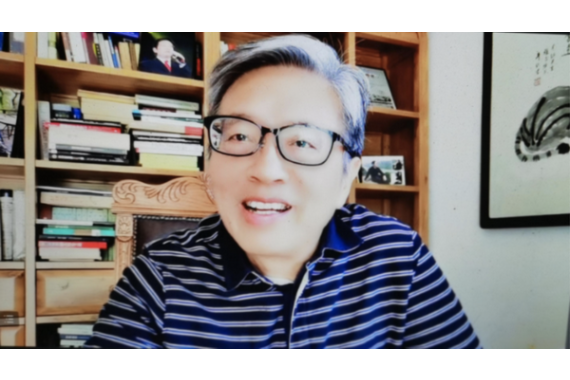
May 19, 2022
Professor Xinlei Chen’s Paper Accepted for Publication in Marketing Science
Recently, Xinlei Chen’s (Professor of Marketing at SAIF) paper “Does Concealing Gender Identity Help Women Win the Competition? An Empirical Investigation into Online Video Games” has been accepted for publication inMarketing Science(MS). Marketing Scienceis one of the top 24 international journals in Economics and Management (based at UT-Dallas) and was ranked as one of the top 50 business school journals by the Financial Times. The paper’s co-authors are Xiaohua Zeng (Associate Professor of Marketing at Peking University HSBC Business School), and Cheng Chang (Professor and Chair of the Department of Information Management and Information Systems at Fudan University School of Management). The gender gap is a widespread phenomenon in human society, especially within the labor market. It includes the difference between men and women in income, promotion opportunities, and the scarcity of women in management. Xinlei Chen said that he has been thinking about this issue for many years, but is constrained by real conditions. “Gender differences can be caused by a variety of factors, such as differences in ability between men and women, differences in inputs, different preferences for competition, and gender discrimination, which is a major concern in society… These intertwined factors make it complex to study the problem and analyze the data. Conventional experimental tools are often difficult to work as well.” The prevalence of virtual worlds such as online games brought a new opportunity for this research. He has since been able to study how gender bias leads to gender gaps by using data from players of an online game that has been popular in China, in recent years, as a data sample. The study shows that men are indeed influenced by gender bias in competition and their performance improves when competing with women, while women can reduce the negative effects of gender bias to some extent by masking or misrepresenting their gender information. Professor Chen suggested that people should be aware of the existence of gender bias and take the initiative to reduce bias, and that we should diminish the gender gap gradually by strengthening group collaboration.
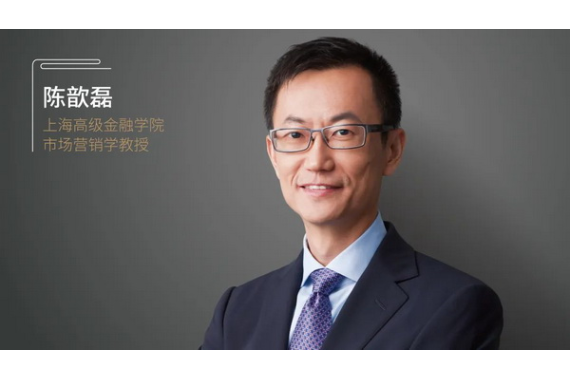
May 17, 2022
SAIF PhD Graduates Joining the Tenure Track at Domestic Universities
Recently, Zhe Geng, a 2022 PhD graduate from SAIF, received a teaching offer from the School of Management of Fudan University. Two other PhD graduates, Xiaoming Li and Mingmei Liu, also received offers from the University of International Business and Economics and Jinan University, respectively. They all joined the tenure track. In fact, since Chinese universities have tried to implement the tenure track faculty system, most of the newly recruited professors are PhD graduates in relevant fields from famous overseas universities. So, what makes PhD students from SAIF stand out among so many Finance PhD returnees ? Zhe Geng said, “Thanks to the academic training and encouragement from my supervisors, Professors Jun Pan and Tan Wang, during my PhD, as well as the guidance from Professors Jiang Wang and Darrell Duffie, I was able to get the offer from Fudan University. I also want to express my gratitude to SAIF’s international cultivation model and the whole faculty team.” As for the three PhD graduates entering the tenure track of top universities in China this year, Nengjiu Ju (Professor of Finance, PhD Program Academic Director atSAIF) said, “It shows that SAIF PhD graduates basically have the strength to compete with PhD students from famous overseas universities at the same level. It also shows that SAIF PhD program has been recognized by peers.”
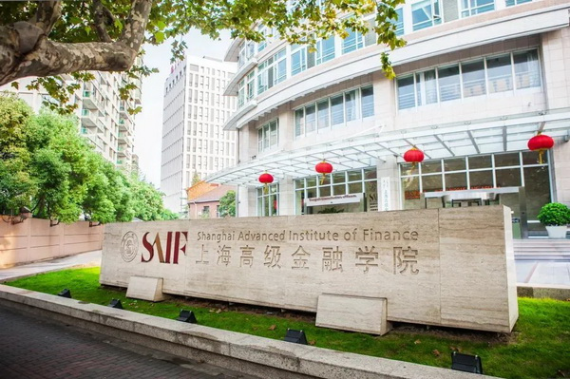
May 09, 2022
Professor Jun Pan and Professor Ning Zhu Selected as “Highly Cited Chinese Res ...
On April 14th, 2022, Elsevierreleased the list of Highly Cited Chinese Researchers 2021(the List). Two SAIF professors, Jun Pan and Ning Zhu, were named as Highly Cited Researchers in Applied Economics. The List was released by Elsevier, a globally renowned academic publication group. The List was based on Scopus, an authoritative citation and indexing database, as its statistical source and a methodology developed by Shanghai Ranking Consultancy. This year, Elsevier used updated data based on the first-degree disciplinary classification by the Ministry of Education (which covers 111 disciplines). Elsevier explained that it improves and depicts the research output of Chinese scholars scientifically and accurately, which helps to further study the citation performance of scholars. Meanwhile, more scholars with outstanding performance in subdivided fields have been introduced to the public. A total of 4,701 scholars from 523 universities, enterprises and research institutions are selected in the 2021 Highly Cited Chinese Researchers List, covering 10 subjects and 84 first-degree Disciplines of the Ministry of Education. 139 SJTU scholars are on the list, ranking the 4th among universities in the mainland. Faculty Profile Professor Jun Pan Jun Pan is currently a Professor of Finance and SAIF Chair Professor at Shanghai Advanced Institute of Finance (SAIF), Shanghai Jiao Tong University. Prior to joining SAIF in 2019, she was the School of Management Distinguished Professor of Finance and Professor of Finance at MIT Sloan School of Management. Jun has a B.S. degree in Physics from Shanghai Jiao Tong University, a Ph.D. in Physics from New York University, and a Ph.D. in Finance from Stanford University. Professor Ning Zhu Ning Zhu is a Professor of Finance and Deputy Dean at the Shanghai Advanced Institute of Finance, Shanghai Jiao Tong University. He is aGlobal leading expert on China's economy and financial system.Professor Ning Zhu is a faculty fellow at the Yale University and General Secretariat at the International Finance Forum. Previously, he was a chair professor at Tsinghua University and tenured professor of finance at University of California. He provides advising government agencies and corporations in the world and is frequently featured in global media. In addition to his academic research, Professor Zhu helps asset management companies in a wide range of capacities. He has published award-winning and best selling "China's Guaranteed Bubble" and "The Investors' Enemy". During his leave from the University of California in 2008-2010, he leads award-winning quantitative strategies and portfolio advisory teams at Lehman Brothers and Nomura.
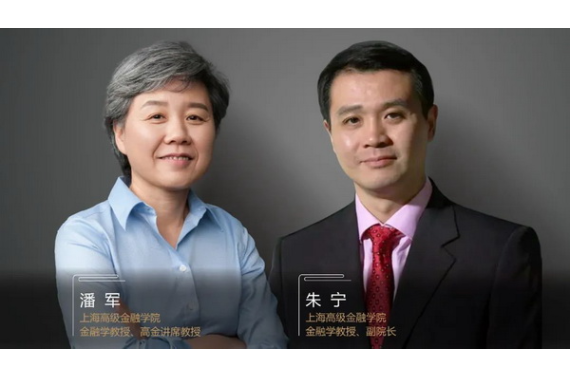
April 18, 2022
2021 QS World University Rankings Published
On April 6th, 2022, QS (Quacquarelli Symonds) released its 12th World University Rankings by Subject. Shanghai Jiao Tong University (SJTU) ranked among the top 50 in the world in 6 disciplines. Three of these six disciplines were co-constructed by SAIF, including: Accounting and Finance, ranked 48th globally; Business and Management Studies, ranked 50th globally; and Economics and Econometrics, ranked 63rd globally — with all 3 disciplines ranked in the top 3 in mainland China. In addition, Statistics and Operations Research ranked 51st-100th in the world, and 4th in mainland China. The ranking conducted an independent comparative analysis of the performance across 51 disciplines and 5 academic fields of 15,200 universities globally. In QS Rankings by Subject 2021, a total of 93 universities from mainland China were listed, ranking 3rd in the world after the U.S. and the U.K in terms of the number of disciplines. One hundred disciplines of 22 universities in mainland China were ranked in the top 50 globally. QS World University Rankings by Subject is one of the four most authoritative global university rankings, along with Times High Education, U.S. News & World Report, and ShanghaiRanking. Unlike the Times and U.S. News rankings, which focus on comprehensive indicators (including academic conditions and funding), the QS and ShanghaiRanking emphasize academic reputation, research output, and impact. In the 2021 ShanghaiRanking’s Academic Ranking of World Universities released last year, in Finance, SJTU ranked 1st in mainland China and 55th in the world.
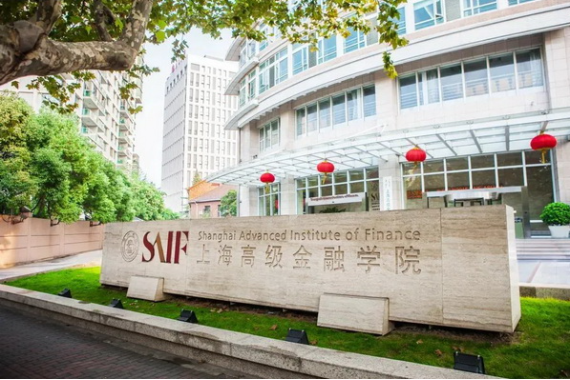
April 05, 2022
2022 SAIF Faculty and Staff Spring Semester Meeting Held
On February 25th, the Faculty and Staff Spring Semester Meeting was held at SAIF. Professor Shijun Cheng (Executive Dean), Professor Qigui Zhu (Secretary of the CPC SAIF Committee), Professor Jiang Wang (Executive Director, Chair of Academic Council at SAIF), and Professor Guangshao Tu (Adjunct Professor of SJTU, Executive Director of SAIF Board) delivered speeches. Nearly 200 SAIF professors and staff attended the meeting. Professor Shijun Cheng said that in 2022, SAIF needs to further develop and innovate with talent training, faculty training, think tank construction, resource expansion, internal management, and party construction. SAIF also needs to strive for breakthroughs in teaching and research, optimize resource allocation and management structure, and give full play to synergy efforts to enhance SAIF's core competitiveness. Professor Qigui Zhu said that in order to ensure the successful completion of the 14th Five-Year Plan and the key tasks of SAIF, we should continuously emphasize both quality and quantity in 2022. We must focus on key and difficult points, so as to comprehensively promote SAIF's agenda. Professor Jiang Wang pointed out that SAIF has entered version 2.0 of its development since the start of the Phase III Strategic Plan, which requires more effort to achieve higher standards and goals. SAIF will innovate, strengthen sustainable development, and enhance the functions of the Shanghai Municipal Government. In his concluding speech, Professor Guangshao Tu said that all faculty should further build upon their strengths and transform existing resources into developmental momentum for Shanghai, SJTU, and SAIF itself.
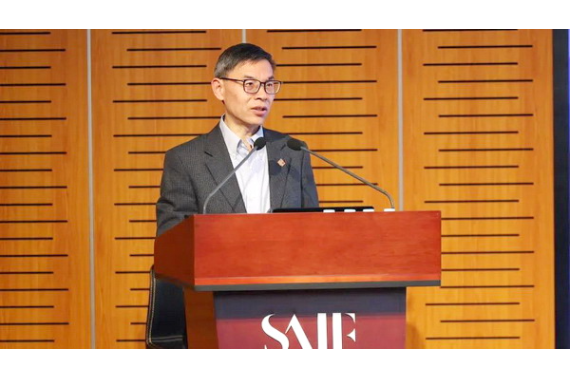
April 01, 2022
SJTU’s Industry & Business Administration Listed in “Double First-Class� ...
On February 14th, 2022, China issued a list of eligible universities for the second stage of its initiative to build top-class universities and assemble academic disciplines. Shanghai Jiao Tong University (SJTU) has been listed in 18 of the disciplines, including Industry & Business Administration which was co-constructed by SAIF. In this stage of the "Double First-Class"initiative of Industry & Business Administration, SJTU took Industry & Business Administration as the main construct, and three first-level disciplines as supporting elements, including Management Science & Engineering, Applied Economics, and Public Management. It was co-constructed by SAIF and its main research fields included: Enterprise Management, Data Science & Management Optimization, Accounting & Finance, Technological Innovation & Industrial Development, and Business Environment & Policy Innovation. In the first stage of "Double First-Class"initiative (2016-2020), SJTU achieved expected results in the construction of "Business and Management"(which will change into "Industry & Business Administration"in the second stage), with some of the tasks having been completed beyond expectations. It ranked A+ in the 4th round of discipline assessment by the Ministry of Education, and, of its five directions, ranked in the top 100 in the QS World University Rankings. Accounting & Finance, which was constructed mainly by SAIF, ranked in the top 50 globally and in the top three among mainland universities.
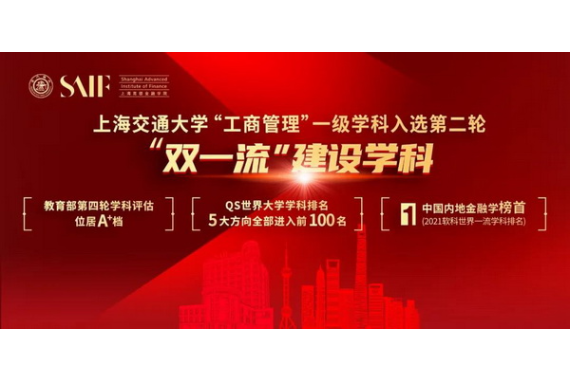
March 04, 2022
10th International Youth Leadership Finance Summit Held at SAIF
Recently, the 2022 International Youth Leadership Finance Summit was hosted by the SAIF MF Program. More than 120 outstanding students from 24 top universities around the world gathered online to focus on ESG from the perspective of generation Z. Participating universities included: Tsinghua University, Peking University, Shanghai Jiao Tong University, Fudan University, Cornell University, London School of Economics and Political Science, University of Toronto, and the National University of Singapore, and many others. At the opening ceremony, Professor Chun Chang (Executive Dean, Professor of Finance, Huifu Chair Professor at SAIF) delivered a welcome speech. He said that through this international platform, the youth of today can swiftly exchange ideas with industry leaders and mature rapidly. The theme of this year's summit, "Exploring Solutions on ESG for a Better Future", attracted more than 1,000 applications from all over the world. Only 120 students were selected and they to re-form into teams in order to compete in the four-day live PK session and demonstrate their best solutions. Combining their professional expertise and interests, the participating teams chose business case companies in a wide range of markets, including: materials, new energy, consumer goods, automotive, etc. They focused on 23 companies, such as Contemporary Amperex Technology Co. Limited (CATL, a Chinese new energy technology company), Deliveroo (a British takeaway platform), JBS (a Brazilian meat producer), and International Petroleum Investment Co. (IPIC). They used professional knowledge and creativity to design ESG solutions for these companies, and analyzed the feasibility of the solutions for academic and industry experts. At the conclusion, Team Libru from Fudan University won first prize. They chose CATL as the business case company for their ESG solution and began their analysis from the perspective of the lithium battery cycle. Their perfect presentation and their calmness during the Q&A session won unanimous approval from the judges. At the summit, Professor Guangshao Tu (Member of the National Committee of CPPCC, Adjunct Professor of SJTU, Executive Director of SAIF Board) was invited to deliver a keynote speech (virtually) on "ESG and Sustainable Development of Enterprises". He pointed out that the trend of ESG investment was an important symbol of global economic and social development transformation. ESG practice and ESG investment were the two core parts of ESG development. Tu said that three major guiding mechanisms needed to be improved upon in order to promote ESG development, including: ESG practice for micro-entities at the government level, ESG investment in the real economy, and social capital by investment institutions. He also pointed out that ESG development needed: support of a theoretical system, institutional construction, main functions delineated, and an ecosystem. ESG investment can play five major facilitating roles in the sustainable development of enterprises, including: enhancing enterprise value, deepening capital function, optimizing asset structure, promoting enterprise governance, and improving disclosure quality. In addition to the twenty-three teams that were strictly selected to enter the summit, more than one hundred public judges from universities around the world were also invited to observe and participate in the summit. This not only built a platform for students to absorb cutting-edge knowledge and to dialogue with academic experts and industry leaders, but also actively promoted peer-to-peer exchange and learning opportunities among students from diverse backgrounds. During the Q&A session after the keynote speech, Qingyang Wang, a public judge from Nanjing University, asked Professor Guangshao Tu how a new energy supply could keep up with traditional energy based upon the goal of carbon neutrality, and whether it would lead to a deficiency in energy supply. She said that, through Professor Tu's speech and answers, she now deeply understood the logic behind management and control of carbon emissions (instead of just limiting energy consumption) in the practice of ESG.
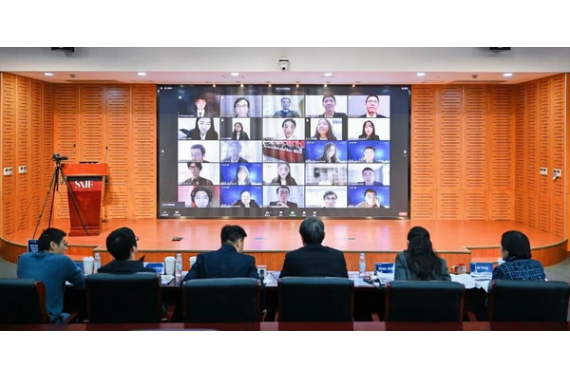
March 03, 2022
2022 Financial Law Excellence Program Held
On January 16th, the closing ceremony of the 2022 Financial Law Excellence Program was held online. The program was jointly organized by SAIF, the Shanghai Financial Court (SFC), the Shanghai Municipal People's Prosecutor's Office (SPP), the SAIF EED Program, and the China Center for Law and Finance (CCLF) of CAFR. After the last lecture on "green finance", given by Professor Tzukuan Chiu (Academic Director of the Sustainable Finance Development Fund), the closing ceremony was held. Professor Ning Zhu (Professor of Finance, Deputy Dean at SAIF, Director of the Sustainable Finance Development Fund, Director of CCLF), Shengping Dai (Deputy Director of SFC Political Department), Xiaojun Gu (Director of the Fourth Procuratorate Department of SPP), and Xintian Chang (Deputy Director of the Education and Training Department of SPP) attended the ceremony; it was presided over by Yile Chu (Secretary General of CCLF). Xiaojun Gu expressed his gratitude to SAIF for the rich and practical curriculum. He pointed out that since the Shanghai Financial Prosecution had been established 10 years ago, being able to work with SAIF and the SFC had not only enhanced its comprehensive capability for financial case handling, but it had also strongly promoted training for finance-law talent. "The program is a success, and it can be replicated and extended. It provides a new path for our rule-of-law talent training."Gu also hoped that the participants would study hard, apply hard-gained knowledge to actual practice, and take initiative in their future work. On behalf of Yong Wen (Member of the CPC SFC Committee, Director of the Political Department of SFC), Shengping Dai expressed his gratitude for the full support of SAIF, the wonderful lectures by experts and scholars, and the careful course design by the course teaching team. He endorsed the achievements of the program jointly developed by the Financial Court and SAIF over the past two years, and hoped that both sides would further deepen cooperation and exchange, improve joint talent training mechanisms, and accelerate the construction of a high-level finance-law talent base. Professor Ning Zhu delivered a speech at the closing ceremony on behalf of SAIF. He congratulated all the students on their successful graduation, and expressed his gratitude to the leaders of the SPP and SFC, and to the students for their support and dedication. Zhu pointed out that the training of finance-law talent was a long-term and gradual process. SAIF and SPP had jointly explored and developed top curriculum and teaching methods, making the program a model for China. He said that SAIF would organize a large number of teachers every year to innovate teaching methods in order to remain close to business realities. Next year, the course will be open to participants from the whole Yangtze River Delta; further improvements will be made regarding the course content and teaching format, from multiple aspects. The program has been held for two consecutive sessions thus far. In the future, SAIF will continue to play to its own advantages in talent training and think tank, and work together with SFC and SPP to better serve the construction of Shanghai as an International Finance Center.
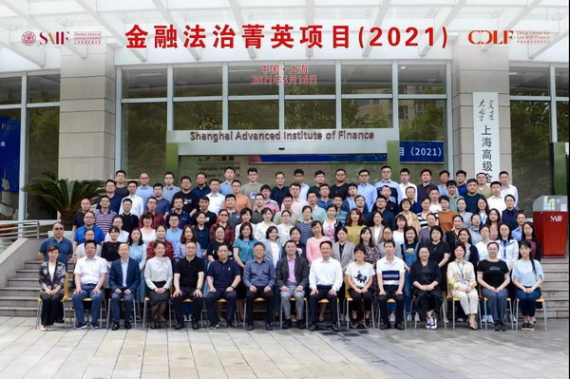
March 02, 2022
Seminar on Supply Chain in Post-Epidemic Era Held by SAIF Think Tank
A closed seminar on "Changes, Opportunities and Strategies of Post-Epidemic Supply Chain"was held by our SAIF Think Tank recently at SAIF's Xuhui Campus. The seminar was presided over by Professor Xiaochun Liu (Associate Director of CAFR). Other experts in attendance include those from SAIF, the China Academy of Finance Research (CAFR), the Antai School of Economics and Management (ATSE) of SJTU, the China Financial Futures Exchange (CFFEX), and the Shanghai Institute of Futures and Derivatives (SHIFD). Professor Hong Chen (Professor of Management at SAIF) reported on "Analysis of the Influencing Factors of Carbon Emissions under the Emission Peak Target and Suggestions". Professor Chen analyzed the characteristics of China's carbon emission structure by comparing international carbon emission structures from different economies and their historical evolution. He analyzed the main influencing factors of carbon emissions by establishing macro-factor and industry-factor models and forecasted fossil energy consumption in the next 10 years. He put forward the necessity of maintaining a stable supply of traditional energy sources yet realizing the necessity of their gradual replacement by clean energy sources. Professor Chen also emphasized two points, the first being carbon footprint. We should not only focus on the direct generation of carbon emissions, but also on carbon emissions caused by consumption on the demand side. Secondly, energy storage technology is a troublesome bottleneck for the scale-up of clean energy. Professor Qigui Zhu (Secretary of the CPC SAIF Committee) reported on "Problems and Suggestions for the Development of China's Chip Industry"from the perspective of turning "crisis"into "opportunity". Professor Zhu discussed the chip industry development condition, both at home and abroad, then compared and analyzed the problems faced by the chip supply chain in China. He then suggested that we seize this good opportunity to promote industrial optimization and upgrading, and to accelerate the process of an independent and controllable chip industry. Specifically, he put forward five suggestions: (1) Insist on long-term investment; (2) Respect intellectual property rights and strengthen innovation protection; (3) Strengthen talent cultivation and attract to grow a senior engineering team; (4) Implement differentiated support policies and create a favorable industrial development environment; and lastly, (5) Enhance supply chain finance to help coordinate production and marketing. Professor Genyuan Zhong and Professor Mengdi Gu commented on the two reports, respectively, and gave high recognition to them. In the discussion session, participants shared their views on carbon emissions and the chip industry, and gave suggestions. These included: Feng Li (Professor of Accounting at SAIF, Associate Director ofCAFR, Co-Director of SAIFR), Professor Tan Wang (Professor of Finance, Academic Director of the MF Program), Professor Zhan Jiang (Term Professor, Academic Director and Executive Director of the EED Program), Professor Tzukuan Chiu, Mingliang Li (Senior Researcher at CAFR, Senior Legal Expert at CFFEX), Lei Hua (Deputy Dean at SHIFD), Ying Ma (Affiliated Professor at SAIF, Expert at CAFR), and Jie Hu (Professor of Practice at SAIF).
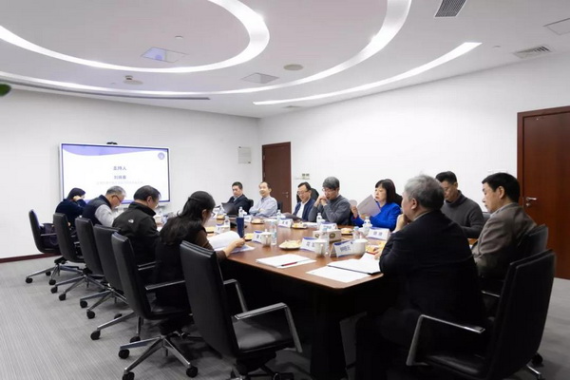

211 West Huaihai Road
Shanghai 200030, China
Tel: +86 21 6293 3500
9th Floor, Building T6, Hongqiao Hui
990 Shenchang Road
Shanghai 201106, China
3rd Floor, Building D, Chenfeng Building
800 Tongpu Road
Shanghai 200062, China
5th Floor, West Tower, World Financial Centre
1 Dong San Huan Middle Road
Chaoyang District, Beijing 100020, China
Tel: +86 10 5081 5880
1203 Tower 7, One Shenzhen Bay
Nanshan District, Shenzhen 518000, China
Tel: +86 755 8663 8815
© Shanghai Advanced Institute of Finance All Rights Reserved.


Top